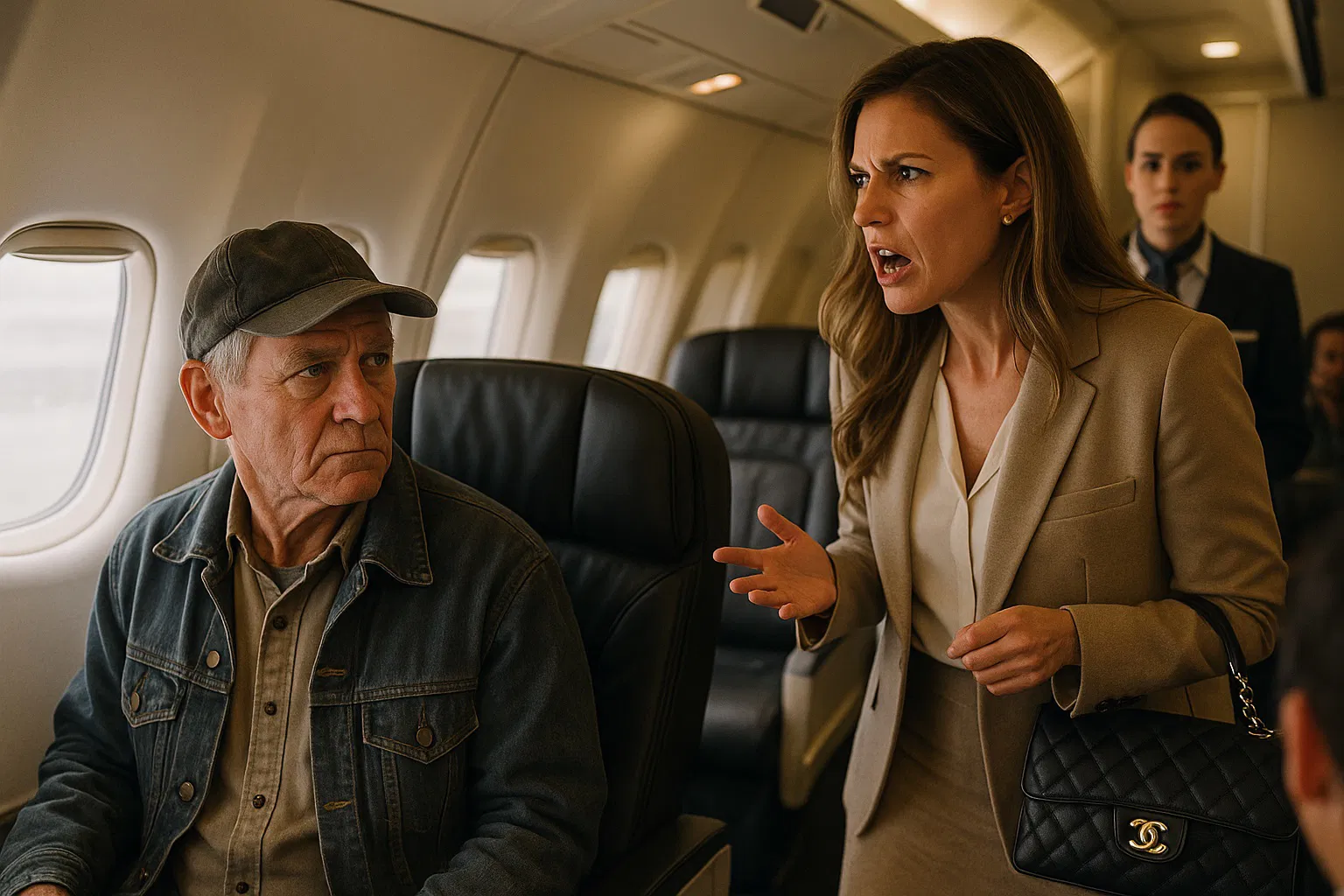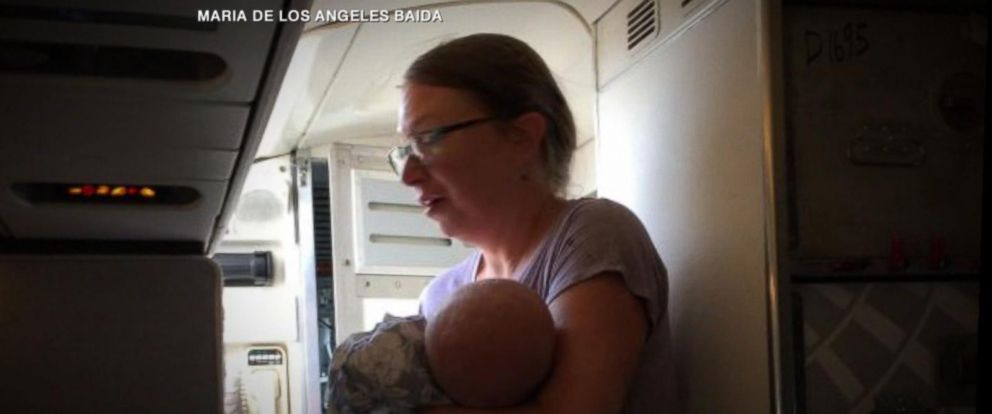Passengers Mocked A Janitor: “I’m not sitting next to him,” the woman said sharply, her tone laced with irritation as she clutched her designer handbag like a shield. Her manicured fingers tapped against the leather as she glared at the man settling into the first-class seat beside her.
Passengers Mocked A Janitor
“Ma’am, this is his assigned seat,” the flight attendant replied, her voice calm but firm. Clearly, she had dealt with this kind of situation before.
The woman let out a short laugh that sounded more like a scoff. “Assigned? You can’t be serious. This is first class. He doesn’t belong here.” Her eyes scanned the man’s worn-out work jacket, frayed at the cuffs, and his calloused hands that looked like they had spent decades holding tools, not champagne flutes. “Did he win some sort of sweepstakes?”
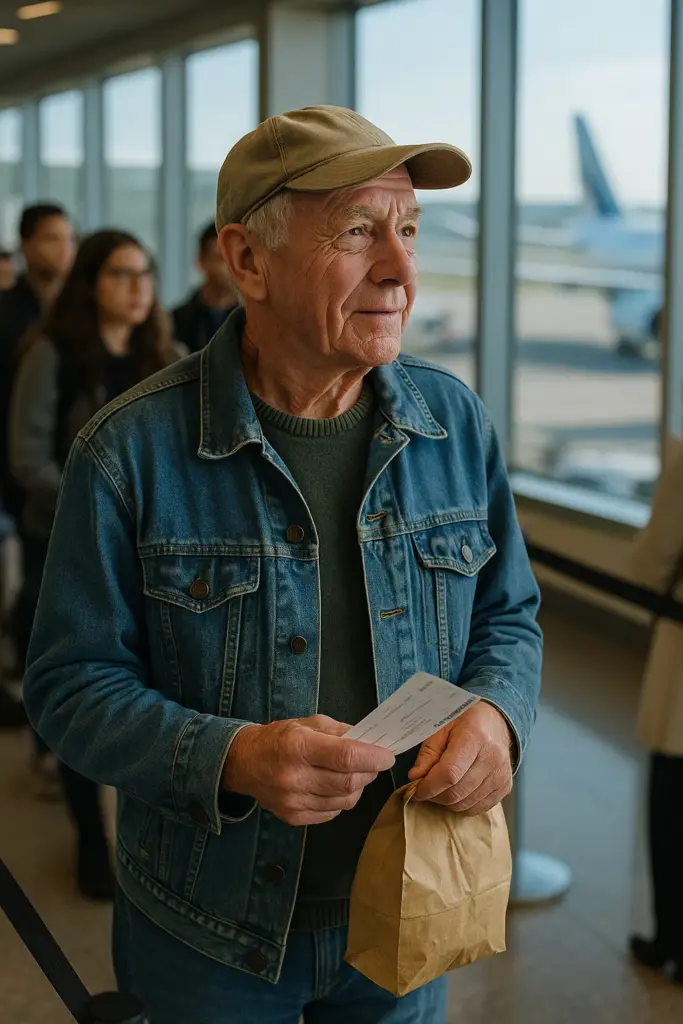
A few passengers within earshot chuckled under their breath. One leaned over to his companion and whispered, “Probably slipped past security.” Others exchanged knowing glances, their eyes full of judgment as they took in the man’s scuffed boots and battered lunchbox resting at his feet.
Through it all, the man—Robert—sat silently. He didn’t look at the woman, didn’t defend himself. Instead, he stared down at his hands, the same hands that had mopped floors, scrubbed toilets, and emptied trash bins for over thirty years. Those hands had raised a daughter, kept food on the table, and built a life the hard way.
First-Class Passengers Mocked A Janitor — Until The Captain Stepped In And Said This
Finally, Robert spoke, his voice quiet but steady. “It’s okay,” he said, standing slowly. “I’ve been saving for this flight for years. But if it makes anyone uncomfortable, I can sit in the back. I didn’t mean to cause a scene.”
The flight attendant opened her mouth to object, but another voice cut through the tense silence—a voice that commanded attention.
“No, sir. Please stay right where you are.”
Heads turned in unison.
The captain stood at the front of the cabin, his crisp uniform gleaming, his posture exuding authority. He walked down the aisle with purpose, his eyes locked on Robert.
“This man isn’t just a passenger,” the captain said, his voice carrying a weight that silenced every whisper. “He’s the reason I’m standing here today.”
The well-dressed woman froze. The smirks on nearby faces vanished.
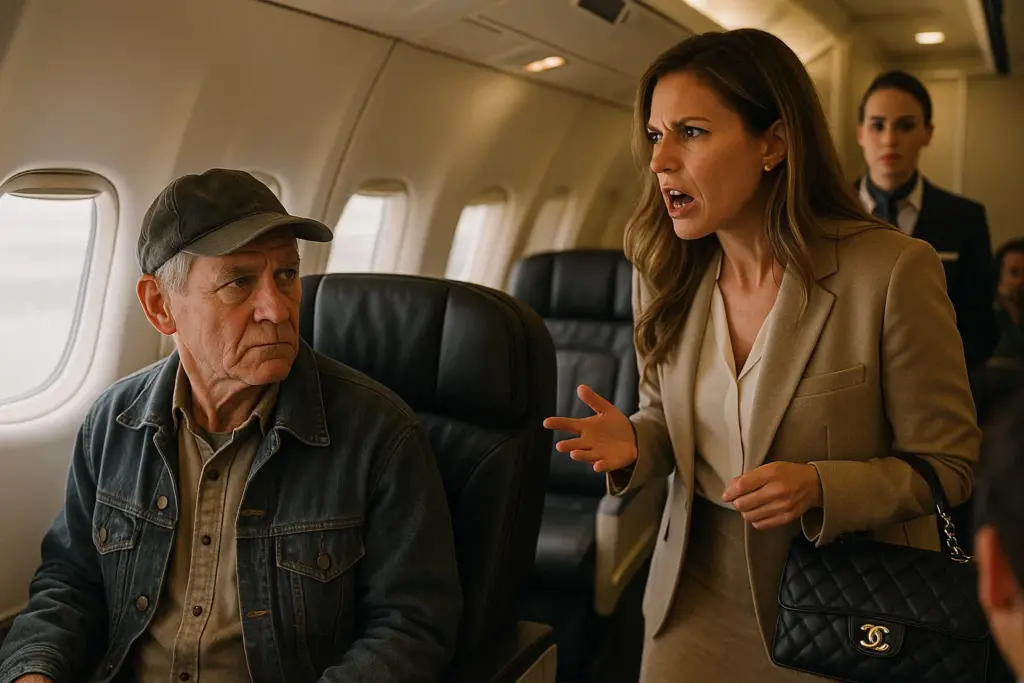
The captain stopped beside Robert and offered him a respectful nod. Then, he turned to the passengers.
“When I was a teenager,” he began, “my family struggled. My father lost his job. We barely had enough to eat. I was close to dropping out of school. Every night, I stayed late to use the library Wi-Fi so I could finish my assignments. And every night, Robert was there.”
Robert shifted uncomfortably, clearly unused to being the center of attention.
“One night, he walked up to me and said, ‘You look hungry, son.’ And then he handed me a sandwich. He didn’t have much himself, but he shared what little he had. And it didn’t stop there. Every night, he checked on me, made sure I ate something, and told me, ‘Keep going. You’re gonna do great things.’”
A soft murmur rippled through the cabin as the captain’s voice cracked slightly with emotion.
“I got a scholarship. I graduated college. I became a pilot. But I wouldn’t have made it without him.”
Robert’s eyes glistened as he stared at the floor.
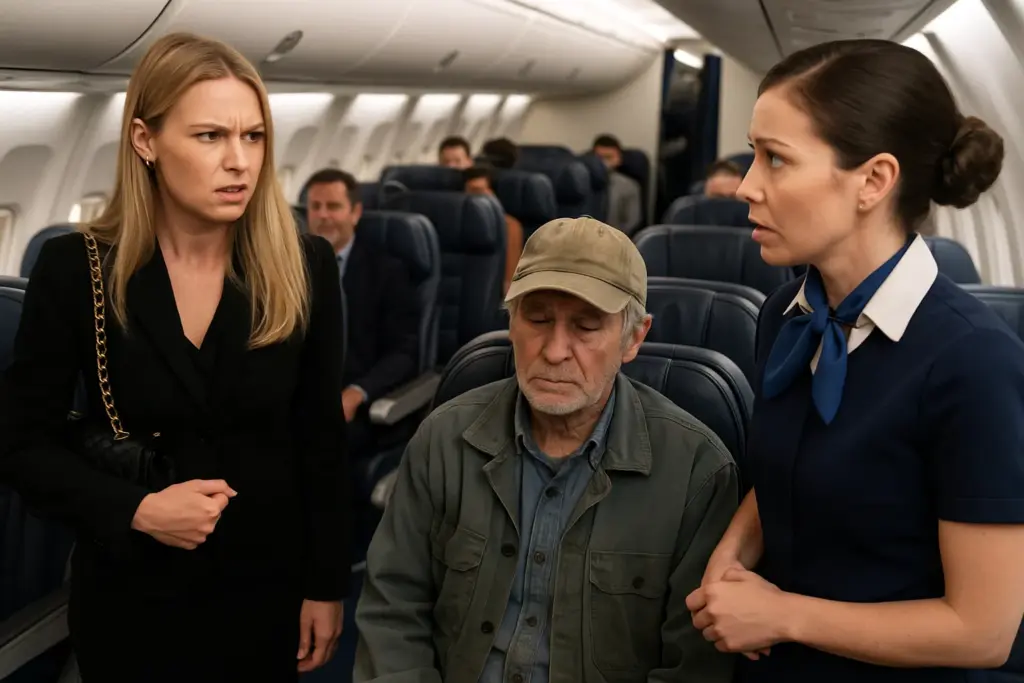
“When I found out he was finally taking the trip he’s dreamed about for years,” the captain continued, “I made sure he sat in first class. He deserves it.”
The woman’s face flushed crimson. Her lips parted, but no words came out. Finally, she managed a quiet, “I—I didn’t know.”
“That’s the point,” the captain said gently. “You didn’t care to know. Judging someone by their clothes or their job title doesn’t tell you who they are.”
The cabin was silent. You could almost feel the collective shame settling in.
The flight attendant, smiling softly now, turned to Robert. “Can I bring you something to drink, sir? Anything you’d like.”
Robert shook his head, his voice barely above a whisper. “I’m just grateful to be here.”
As the captain returned to the cockpit, the mood in the cabin shifted. The same passengers who had mocked him now looked down in shame—or leaned forward to offer a smile.
Later in the flight, the man who had joked earlier leaned over and said, “Sir, I’m sorry for what I said. That was ignorant.”
Robert smiled gently. “No hard feelings.”
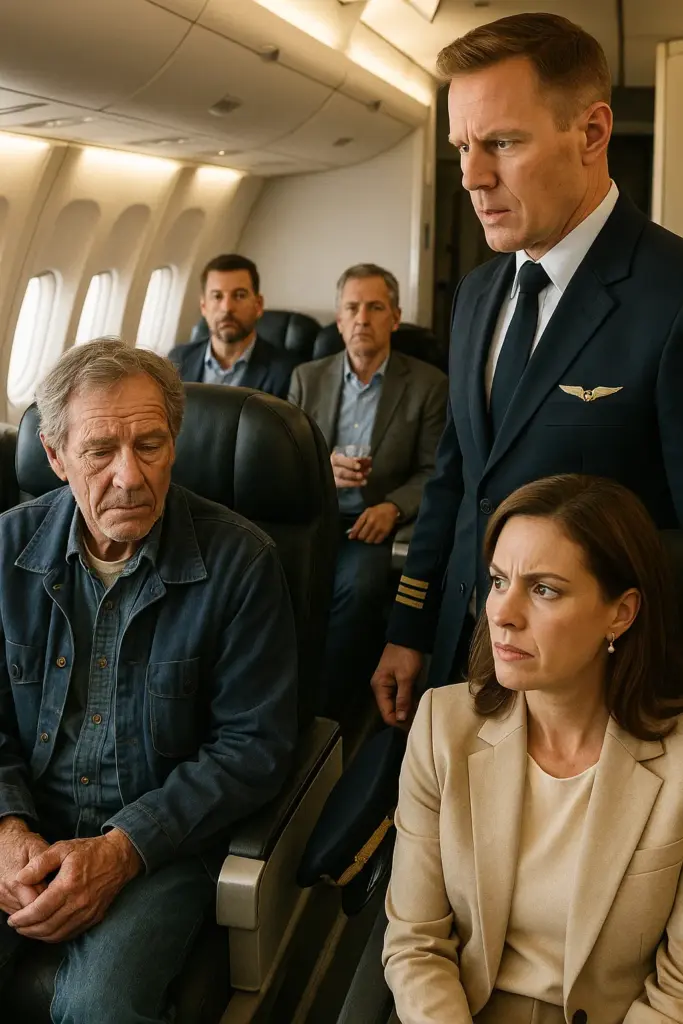
Even the woman with the designer bag spoke again, her voice soft and hesitant. “I hope you enjoy your trip. Where are you headed?”
Robert’s eyes lit up. “San Diego. My daughter just had her first baby—my first grandchild. Been saving for years to meet her.”
For the rest of the flight, something beautiful happened. People asked about his granddaughter. They shared stories of their own families. They laughed. They listened.
When the plane landed, several passengers shook Robert’s hand as they deboarded. The captain was waiting at the door. He hugged Robert firmly and whispered, “You’ve helped more people than you’ll ever know.”
As Robert walked toward his waiting family, he thought about how strange life can be—and how far a simple act of kindness can ripple through the years.
Because in the end, first class isn’t about champagne or legroom.
It’s about humanity.

